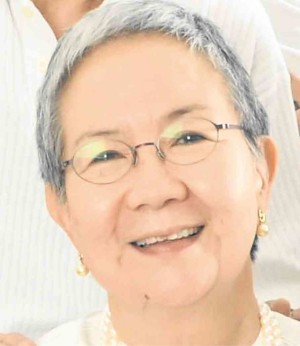Grameen-inspired NGO empowers poor Filipinas
Mercy Abad is president of Ahon sa Hirap, a nongovernment organization that has helped over 40,000 in poor communities, applying the Grameen methodology introduced by Nobel laureate Muhammad Yunus in Bangladesh. Prior to Ahon, she was president of TNS Philippines, the biggest market research firm in the Philippines.
She shares how Ahon has focused on the bottom of the pyramid and marketed the desire of the poor to start a small business.
Q: Your foundation helps poor but enterprising women by lending them money and guiding them with business basics. What have you discovered about these women when it comes to money management?
A: First, I want to clarify that our organization Ahon sa Hirap attends to all forms of poverty, so the money part is just one aspect of our mission. The social aspect of our mission is actually more important to us. We also attend to [cases of] social isolation, being forgotten, [those] missing the basic human needs of being cared for as well as spiritual poverty.
Secondly, we target not just any poor, but the bottom poor who earn below P250 a day. We use the Progress for Proverty Index (PPI) to do our targeting.
Article continues after this advertisementThese women need not be enterprising at the start. Most of the women members have little or no education, so training starts from the very basic.
Article continues after this advertisementFirst, we motivate them and their families to dream; teach them their true identities (children of God) and what are expected of them. The motivation part is very important because it instills trust and sets the tone of the mission. Then we teach them to differentiate between needs and wants, to develop a credit discipline, and to adapt savings as part of their financial strategy.
The women take to the training sessions easily. These women, though lacking in education, are gifted with a lot of functional literacy. They are simply amazing.
Q: A sickness or related emergency can affect the borrower’s cash flow. How do you mitigate risk, such as their inability to pay back?
A: The women group themselves by fives and one group eventually develops into a small caring group. They approve each other’s loans and assist those who are in difficulty. It is really a beautiful thing when the members realize the value of the group because they find strength in each other.
They become part of a community that is struggling, but one that is trying to become better. They accompany each other in this struggle, carry each other, encourage each other, help each other stay on the right path, even heal each other’s brokenness. Together, they lift each other.
Q: How’s your collection doing?
A: Our collection performance is around 98 percent, but actually varies from place to place. In Antique, they have maintained an exceptional 100 percent collection. In the more urban areas, we had trouble maintaining satisfactory collection rates but with some strategy, those improved a lot this year.
Prof. Yunus who developed the Grameen methodology, which [inspired us], was right: There is honor among the poor.
Q: I understand the frequency of collection visit is high. How do you manage collection efficiency?
A: The methodology we use requires that members meet every week in their respective centers. But the meeting is not only about collection.
Many things happen during a center meeting. The groups deepen their relationships, talk about their problems and achieve some modicum of catharsis. The agenda requires that the nanays (mothers) are taught something new at each meeting. Lately, they were taught how to cook nutritious meals.
Q: Can you share success stories on how a small loan transformed lives of your constituents?
A: We have compiled into a book 100 life transformations, which we gave to Vice President Leni Robredo when she joined us for our 25th anniversary. Actually, there are more than 40,000 such transformations by now.
It is truly amazing how a small starting loan can make a difference to marginalized families.
Take Nanay Lerma Garachico who, along with her five children, was abandoned by her husband. At that time, our starting loan was only P2,500.
With that, she bought a boar which she used to impregnate other pigs. She would get one pig for every successful union. Over time, with great industry and perseverance, she was able to send all her five children to college: two became policemen, two nurses and a lawyer who already passed the Bar. She struts around San Jose, Antique a very proud and happy woman.
Q: What else would you like to see done to uplift the status and lives of marginalized women?
A: It takes time to make them shatter their usual programming or conditioning. Ahon invests a lot in educating and training them. Eventually, we want them empowered with the ultimate reality of who we are: children of God, made in his likeness, unique and destined to claim his gifts.
As such, we have the same rights as anyone else. We want them to break free from their cages, discover their inner strengths and powers and bring these to life. —CONTRIBUTED
Josiah Go is chair of Mansmith and Fielders Inc. Full transcript is available on www.josiahgo.com. Ahon accepts donations. Check their website for details: https://www.ashi.org.ph
